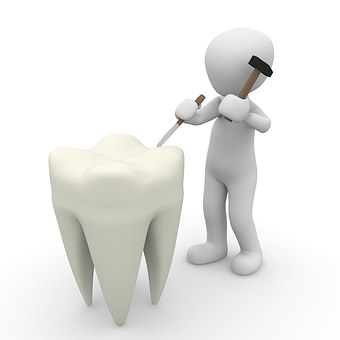Regular dental check-ups are essential for maintaining optimal oral health. Many people may think of these appointments as merely routine cleanings, but they serve a much greater purpose, especially when it comes to preventing the need for more invasive treatments like root canals. This article explores how regular dental visits can help you avoid the need for root canal therapy and maintain a healthy smile.
Understanding Root Canals
Before diving into the importance of regular check-ups, it’s crucial to understand what a root canal is and why it might be necessary. A root canal is a dental procedure performed to treat infection or damage to the pulp of a tooth. The pulp contains nerves and blood vessels, and when it becomes infected or inflamed due to decay or injury, it can cause severe pain and lead to tooth loss if left untreated.
The signs that you might need a root canal include:
- Severe toothache: Persistent pain that may worsen when chewing or applying pressure.
- Temperature sensitivity: Prolonged sensitivity to hot or cold foods and beverages.
- Swelling and tenderness: Swelling of the gums or face near the affected tooth.
- Discoloration: Darkening of the tooth, indicating possible nerve damage.
- Recurring pimple on the gums: A bump that may ooze pus, indicating an abscess.
While root canal therapy can save a tooth, it’s always preferable to prevent the situation from escalating to that point.
The Role of Regular Check-Ups
Early Detection of Problems
One of the primary benefits of regular dental check-ups is the early detection of dental issues. During a routine visit, your dentist will conduct a thorough examination of your mouth, including X-rays, to identify potential problems before they become serious. This allows for early intervention, which can significantly reduce the risk of requiring a root canal.
For instance, cavities can develop into more severe issues if not treated promptly. If your dentist spots decay in its early stages, they can perform a simple filling instead of allowing it to progress to the pulp, which would necessitate a root canal.
Professional Cleaning
During check-ups, dental professionals perform thorough cleanings that help remove plaque and tartar buildup from your teeth. Plaque is a sticky film of bacteria that forms on teeth and can lead to gum disease and tooth decay. Tartar, or calculus, is a hardened plaque that can only be removed through professional cleaning.
By regularly removing plaque and tartar, you minimize your risk of developing cavities and gum disease, both of which are significant contributors to the need for root canal treatment. Clean teeth are less susceptible to decay, and healthier gums support the overall well-being of your teeth.
Monitoring Oral Health
Regular dental visits allow your dentist to monitor your oral health over time. This ongoing assessment helps identify patterns or changes that may indicate a developing problem. For instance, if your dentist notices that you have recurring cavities, they can work with you to develop a personalized prevention plan that includes dietary changes, better oral hygiene practices, or the application of sealants to protect your teeth.
Additionally, your dentist can evaluate your bite and alignment, identifying issues that could lead to tooth wear or stress, which may ultimately result in pulp damage. Early intervention in these cases can help prevent the need for more extensive procedures like root canals.
Education and Preventive Care
Regular check-ups also serve as an educational opportunity. Your dentist and hygienist can provide guidance on proper brushing and flossing techniques, as well as advice on maintaining a healthy diet that supports dental health. They may recommend specific products, such as fluoride toothpaste or antimicrobial mouthwash, that can help prevent decay.
By empowering patients with knowledge and tools for effective oral hygiene, dental professionals can help you take proactive steps to protect your teeth and gums, reducing the likelihood of needing a root canal.
Addressing Lifestyle Factors
Certain lifestyle choices can impact your oral health and increase the risk of dental problems. Regular dental visits allow your dentist to discuss these factors with you, including:
- Diet: Consuming high-sugar or acidic foods can increase the risk of cavities. Your dentist can help you understand how to balance your diet for better oral health.
- Smoking: Tobacco use can lead to gum disease and other oral health issues. Your dentist can provide resources and support for quitting smoking.
- Bruxism: Grinding or clenching your teeth can cause enamel wear and increase the risk of tooth damage. Your dentist can recommend solutions, such as a night guard, to protect your teeth.
Building a Trusting Relationship
Regular dental check-ups help build a trusting relationship between you and your dentist. This rapport can make it easier to discuss any concerns or symptoms you may have. Feeling comfortable sharing information allows your dentist to provide the best possible care tailored to your specific needs.
Conclusion
Regular dental check-ups are crucial for maintaining your oral health and can significantly reduce the risk of needing root canal therapy. By enabling early detection of dental issues, providing professional cleaning, monitoring oral health, educating patients, and addressing lifestyle factors, these appointments are vital in preventing more invasive treatments.
Prioritizing regular visits to your dentist is an investment in your overall health and well-being. Schedule your next dental check-up today to keep your smile healthy and avoid the need for a root canal in the future!


